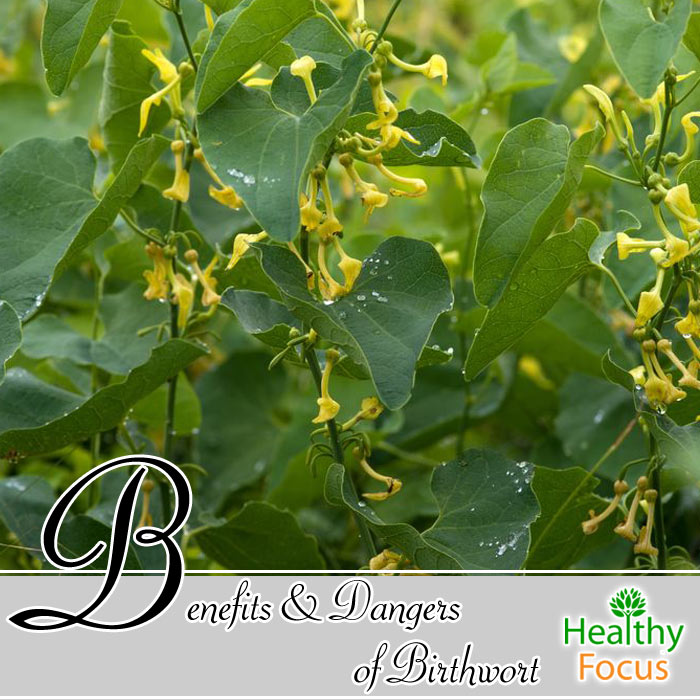What is Birthwort?
When looking to herbs to boost your health and to help treat minor ailments, it’s important to do enough research and to speak to a physician before use to ensure safety and that you are using the herb correctly. Birthwort, an herb that was once highly regarded in traditional Chinese medicine is now considered toxic and extremely dangerous.
The name birthwort was coined in England, because fresh juice extracted from the herb was used to induce labor. Birthwort descended from the genus species Aristolochia, which means “excellent birth.” Because birthwort is now considered toxic, it is no longer used to induce birth.
Plant Description
Native to the Mediterranean, birthwort herb is found in many regions. The plant is characterized by its unpleasant smell and yellow flowers, which trap insects as they pollinate the plant. The plant grows to about three feet in length.
History
Birthwort has an extensive history. Applications of birthwort first appeared around 372 BCE as a treatment for reptile bites, disorders affecting the uterus, and sores on the head.
In medieval texts, Birthwort was considered as a sort of preventive measure against illness.
Historically, Aztecs found birthwort as a means to treat dysentery, abscesses, and various other health conditions. Francisco Hernandez observed the Aztec’s use of birthwort and documented it in the 16th century.
Since then, it has popped up around the globe, prescribed for a variety of illnesses and uses.
Uses of Birthwort
Birthwort has been used around the world to treat various ailments. However, evidence has come to light suggesting that using birthwort is extremely dangerous and is not a suitable treatment option.
Native Americans used birthwort to treat snakebites. They would make a poultice comprising of an infusion of herbs, including birthwort and would apply it directly to the wound. Birthwort was also used to treat snakebites in Mexico and the Amazon.
In Chinese medicine, birthwort was recognized for its ability to treat pain, and edema, and illnesses affecting the lungs. It’s also been used to abscesses, stomachaches, joint pain, and malaria.
Around the world, birthwort has been used to induce labor, prevent infection, treat wounds, and scorpion stings.
Cancer Connection
Despite it’s many applications to enhance health, evidence has surfaced that birthwort is toxic and linked to cancer due to its artistolochic acid content.
Reports began to surface in the 1990s when several women in Belgium began to develop symptoms of kidney failure after taking a weight loss supplement containing artistolochic acid. After these reports came to light, more reports kidney damage surfaced.
In 2001, the Food and Drug Administration released a consumer advisory that supplements and weight loss aids containing artistolochic acid were dangerous and advised that it be discontinued. By 2003, many countries acknowledged the danger associated with artistolochic acid and have since banned artistolochic acid.
Birthwort and its genus Aristolochia are now considered a Group 1 carcinogen. Evidence has found that Aristolochia contains a toxin extremely dangerous to kidneys and more than 100 kidney failure cases have been associated with consumption of the herb. Consumption of Aristolochia has also been linked to cases of renal disease.
The Bottom Line
Birthwort is now considered dangerous and is no longer a viable health supplement. Evidence has shown that when taken in small doses over a long period of time can result in kidney failure, renal failure, and the growth of tumors.
Despite being named for its efficacy in inducing birth, women who are pregnant should stay clear of this toxic herb.
The bottom line? If you’re into herbal medicine, there are several safer alternatives to birthwort. If you’re looking for a safe herbal supplement, consult a physician who can steer you in the right direction.

Leave a Reply
You must be logged in to post a comment.